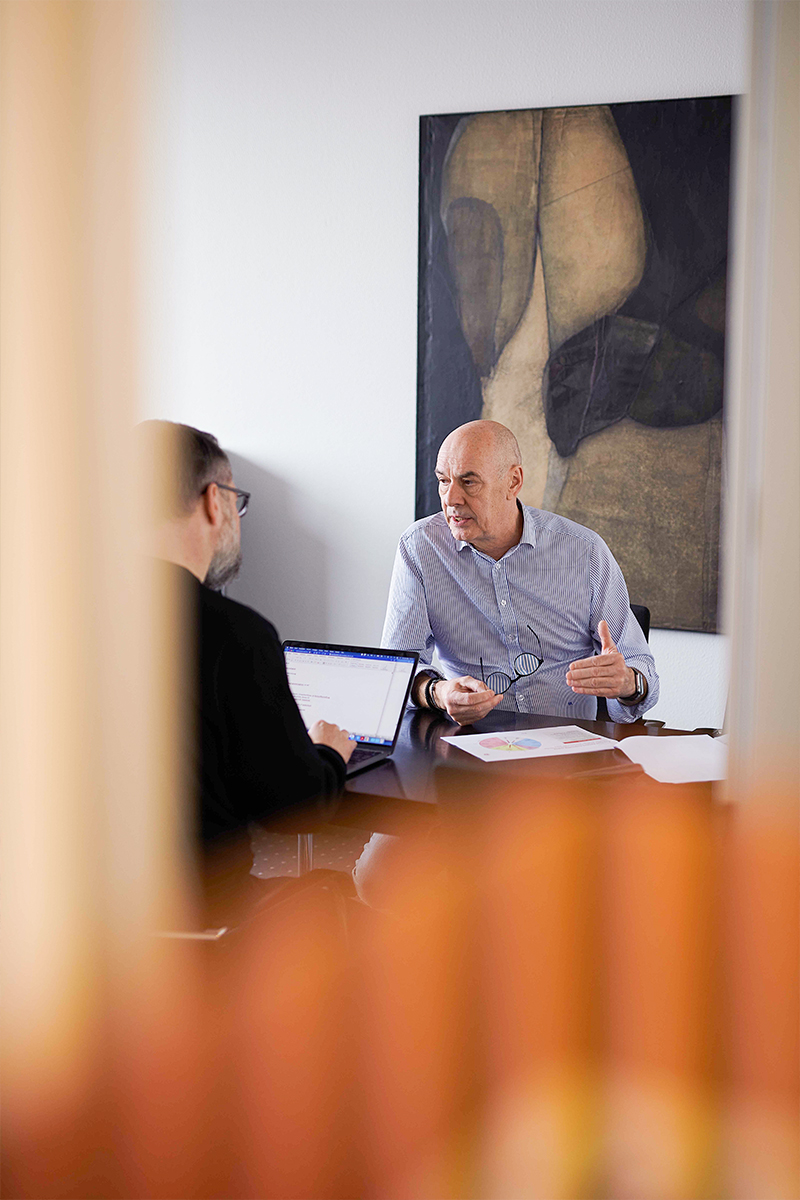In addition to that, you introduced the position of human rights officer in the Group.
Our “Responsible Sourcing Steering Committee” (RSSC), in which our Corporate Sustainability team works with the segments’ purchasing managers and their sustainability officers to implement the requirements of the Supply Chain Due Diligence Law, took up activities back in April 2021. The human rights officer recently appointed by the Executive Board monitors the management of the risks associated with our suppliers as well as the remedial and preventive measures introduced. He has also introduced a grievance mechanism that allows external interest groups to anonymously report human rights and environmental violations to the Sustainability Office without the fear of reprisals.
The third point, use of raw materials and the circular economy, also concerns the purchasing of products. How was the focus set on the circular economy?
It has been one of the main elements of our business model for a long time, but we never really talked much about it. We implement the principles of the circular economy in our entire raw material and product portfolio by fully using raw materials wherever possible, avoiding by-products or reintroducing materials in production processes – thus also avoiding recycling costs. For example, the ingredients of one-third of our fragrance compositions are based on wood, which we utilize in this way. The circular economy will be decisive to reach our climate and environmental targets. Because one thing is very clear: We consume too many raw materials, create too much waste for the planet, and don’t even fully use its resources. Let’s take a look at the food industry, for example: Today, a third of global agricultural production is lost or wasted along the food chain. In addition, the mining and processing of raw materials is responsible for 50 % of global greenhouse gas emissions and 90 % of biodiversity loss.
These goals are enhanced by the last aspect: environmental protection and biodiversity. How do you want to progress in this area?
In 2010, Symrise defined a climate strategy that will make us more sustainable in all areas. That means we are well positioned. To maintain that, we pursue numerous certifications, align with the science-based targets and report on our sustainability activities in a transparent way. In addition, we participate in initiatives. Let me give you an example of this: In June 2022, Eder Ramos, our Global President of the Fragrance division, was appointed honorary Chairman of the Union for Ethical BioTrade (UEBT), an international nonprofit organization that promotes the responsible sourcing of raw materials. We can thus make an active contribution here. Another example: We now integrate nature-related risks and opportunities into our decision-making process as specified in the international Task Force on Nature- related Financial Disclosure.
At the beginning of 2023, it was announced that Symrise had once again earned top marks in the yearly sustainability ratings of renowned nonprofit organization CDP, formerly known as the Carbon Disclosure Project. How important are such accolades?
We are always happy to receive them because they show that our dedicated work is bearing fruit. For its protection of the climate, water, and forests, Symrise received three A grades in the annual CDP sustainability rating. Based on the CDP data from the 2022 program, Symrise is one of 13 companies to receive three A grades – out of 15,000 participating companies worldwide. Symrise has therefore fulfilled the stringent sustainability criteria for the third time in a row, building on its achievements in the previous year. This all means that we are on the right path, and we will continue to pursue it together with our employees and partners.


